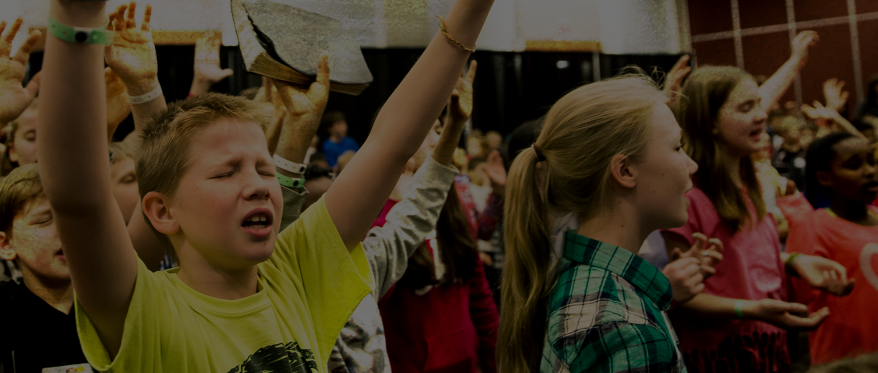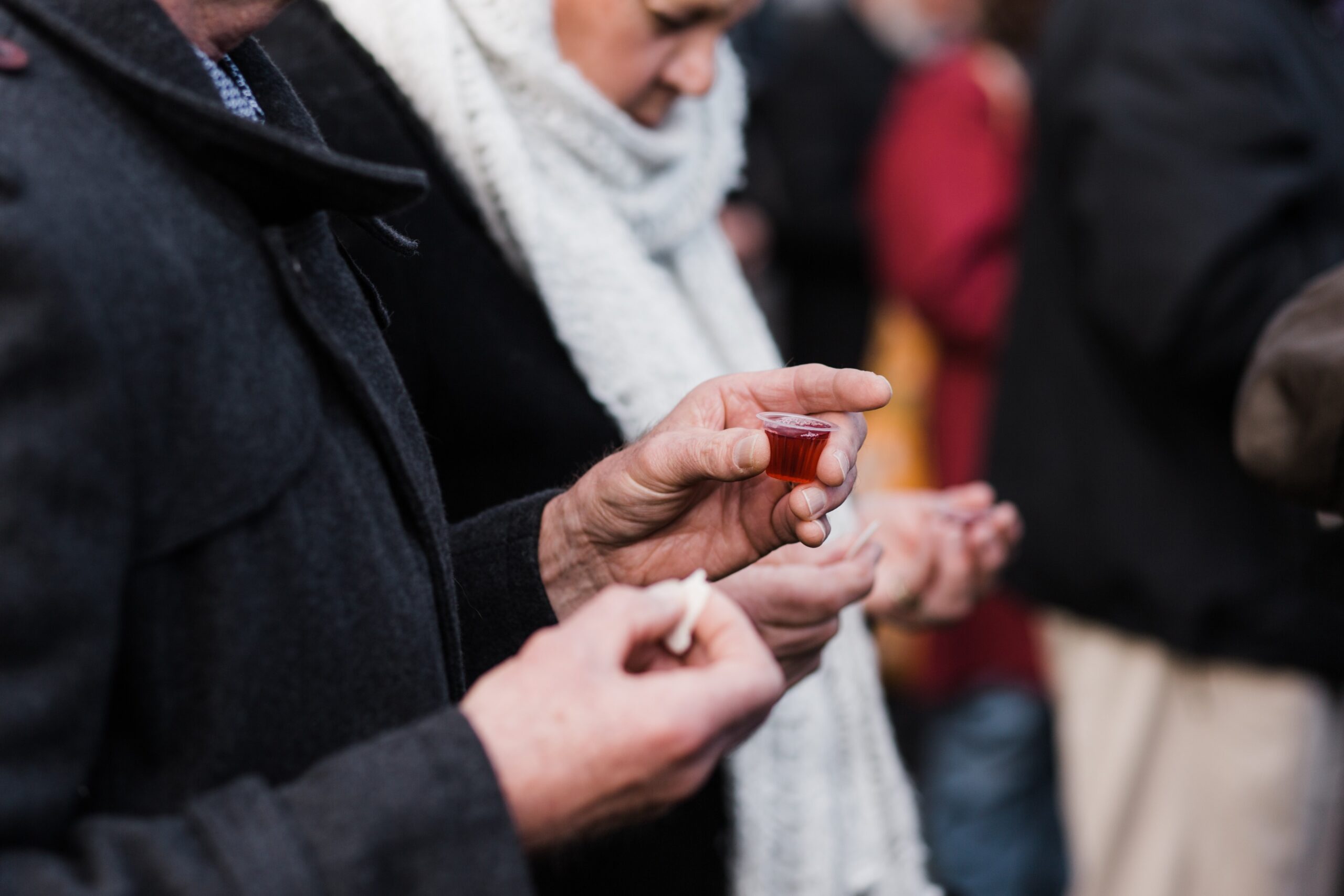A year ago, I wrote an article for Children’s Day titled “Children and their Enemies.” The goal was to identify practices, beliefs, and institutions that are hindrances to the flourishing of children in society. I talked about economic rationalizations that see children primarily as liabilities, abortion, homosexuality, single parenthood, divorce, feminism, pre-marital sex, and materialism.
Positively, I argued that children are assets, the blessings of God. As humans bearing God’s image, they are valuable in and of themselves. They are also crucial to the prosperity and flourishing of society. And for believers, they are essential to the task of generational gospel witness.
For this year’s Children’s Day, I want to focus a bit on the challenges of raising children in our liberal age and how we can be counter-cultural in obedience to God.
Below I look at some of the features of the liberal age that have infested our minds and thoughts and how we can overcome them in obedience to God.
Individualism and community
The individualistic culture
In our liberal age, the individual is primary. Society and community are seen as hindrances to individual expression and authenticity. According to the “wisdom” of our age, the greatest virtue in this world is to be authentic, to be yourself, and live as you please (as long as you don’t hurt anyone, they are quick to add).
The virtuous person, they tell us, is the one who can defy community (and its traditions and norms) to give expression to his deepest feeling of who he is. The community is an intruder, and freedom is defined as our ability to lay off the restraints of the community in favor of individual interest, desire, and vision of self.
Private and personal goals, dreams, and ambitions must trump every other consideration. Family, tribe, community, nation are voluntary and unimportant. Man must be an independent goal-chaser. We are in the age of the so-called “self-made” man (an idea so ludicrous that I am surprised at how popular it is). “Self-made” is no longer the description of some people but an ideal that everyone now strives for. It’s our new badge of honor. If you inherited wealth, you need to see the “self-made” people as superior.
The individual is the captain of his ship, and he can steer it as he likes, everyone else be damned. The idea that there is a natural law or a common good that the individual should obey and pursue is backwardness, we are told.
In fact, expressive individualism is now trumping human nature itself. In today’s world, girls can be boys, boys can be girls, men can be women, and women can be men. The natural distinctions between men and women are social constructs. Homosexuality is now a legal right in many liberal societies.

The authority of Christ
But the Bible teaches us that “none of us live for ourselves alone, and none of us dies for ourselves alone” (Romans 14:7). Instead, “if we live, we live for the Lord; and if we die, we die for the Lord” (verse 8). The Lord has purchased us with a price, and we belong to him (1 Corinthians 6:19-20); therefore, we are not independent, autonomous bodies. He is the captain of the ship.
Christ has died for all so “that those who live should no longer live for themselves but for him who died for them and was raised again” (2 Corinthians 5:15).
The biblical regard for communities
Moreso, when we are united with Christ by faith, we become members of a community – the church. In that community, we are to “be devoted to one another in love” and “honour one another above yourselves” (Romans 12:10). It’s a community of service where everyone uses their gifts to serve the body (Romans 12:4-10).
Moreover, it is a community where we surrender our “rights” for the good of the body (1 Corinthians 6:7), and we prefer to be wronged than to wrong others (verse 8). The ethos of this community is self-sacrificing love, the love that compels us to lay down our lives for our brothers (1 John 3:16).
This community also requires that we spur one another to holiness (Hebrews 3:13) even as we all live under the disciplinary power of the body (1 Corinthians 5, Mathew 18:15-18).
But this is not all.
As believers, we are also members of a family. Paul recognizes this foundation of communal life in Ephesians 6 and Colossians 3. And he has a lot to say to us about how we live in such communities.
But that is not all.
Paul also acknowledges that we live in social and political communities where God places governments over men. Therefore, he instructs us to be obedient to magistrates, who God commissions to punish evil and pursue the common good (Romans 13:1-5).
Christians are supposed to live in the public sphere in a way that is far from reproach (1 Peter 2:12-14).

Raising children who value communities
In this individualistic and self-centered age, we must be counter-cultural and raise children who value communities. We must teach our children that they cannot live to themselves. Instead, they must live to Christ as their creator and savior and value the communities where he has placed them.
Our children must love the family, the church, and the polity (and its institutions ).
We must remind them that no one is self-made; instead, we are the products of the actions, choices, goodness, kindness, diligence, and efforts of others – those living and those dead. And instead of being self-centered people, we are the ones that sacrifice our rights and desires and interests to the common good of the communities where God places us.
In essence, we must train them to love others as they love themselves.
Independence and authority
One way our individualism manifests itself is through the pervasive despising of authority. Children hate the authority of their parents; citizens want to be anarchists; church members hate church discipline or pastoral authority; and members of society hate cultural norms.
Even more important, we are taught to regard the commandments of God as mere subjective preferences that we can acknowledge or disregard as it is convenient or not.
We grow up in a world where we are taught we have endless options, and we can always do what we want. Authority is, therefore, a hindrance to our freedom, we are told. The free citizen is the independent citizen, devoid of any authority figure(s). We have been nurtured to be the captain of our ships.
You are not independent
The Bible rejects this idea. Because God is the creator of every man, we all owe him obedience (Ecclesiastes 12:13). And he has revealed his will to us in natural revelation (the natural law written on every man’s heart and attested to by the conscience – Romans 2:13-15) and special revelation (the old and new testament).
No man is independent of God. We will all stand before him to give an account of ourselves (Romans 14:12), of everything we have done in the body (2 Corinthians 5:10).
Though God’s authority is the only absolute one, the Bible recognizes other subordinate, non-absolute authorities that come with the fact of community.
Parents have authority over their children (Ephesians 6:2). Husbands have authority over their wives (Ephesians 5:23-25). Magistrates have authority over citizens (Romans 13:1-6). The elders/bishops/pastors have authority over their flocks (Hebrews 13:17). The cultural norms of society also have authority over members of that society (Acts 16:21, 21:21).
Again, none of the above authorities are absolute. We obey only as far as the authorities align with divine law or natural law (the distinction between natural and divine law here goes back to Thomas Aquinas. Read more about it here). But though they are not absolute, they are existent, and the Bible recognizes our duty to obey.
There is also the authority of history.
Our liberal age tends to see history as a story of backwardness – our ancestors were backward until we came on the scene to rescue the world.
People who value communities and authorities recognize that though the past is a mixed story of good and evil, we cannot understand or appreciate the present without it. We need to appreciate the wisdom of the past and the virtues of our ancestors. We need to take cues from them, respect the norms they have passed on to us, and appreciate their contributions to the creation mandate.

Children who respect authorities
We must train our children to obey their parents, their pastors, their magistrates, and the cultural norms of society (respecting elders, for example). More importantly, we must train them to obey the only absolute authority – God.
We must teach them to recognize the goodness and blessings of authorities as part of God’s arrangement for human flourishing. Communities only flourish when there are recognized authorities (hierarchies), and children must learn to be obedient, provided that such authorities don’t contradict divine law or natural law.
Similarly, we must raise children who recognize the authority of history. We must teach them about the virtues and wisdom of those who have gone before and rescue them from the pride and insolence that thinks that the world is just 20 years old.
Freedom or Bondage
Our liberal age teaches us that freedom is expressive individualism. The free man is the one that can do what he likes, provided he does not prevent another person from doing what he likes.
But this liberty has only led us into bondage – bondage to multitudinous laws, our appetites, and technology, to name a few.
We disregarded God’s laws and societal norms, but we are now under authoritarian governments who have to police every part of our lives to guarantee our “liberties.” Now, our phones control us, and we cannot break free; our appetites dominate us, and we are slaves to its every whim and caprice.
Instead of freedom, restlessness and regret are our portions.
Biblical freedom
Paul shattered this misunderstanding of freedom when he called a slave “the Lord’s freed person.” “For the one who was a slave when called to faith in the Lord is the Lord’s freed person; similarly, the one who was free when called is Christ’s slave” (1 Corinthians 7:22).
Anyone who belongs to the Lord is truly free. Why is this?
The greatest slave master of every man is sin. We are all slaves of sin (Romans 6:16), offering our bodies as instruments of unrighteousness. We have turned away from God, wallowing in the miry clay of sin (Romans 3:10-18). Sin controls us, even against our moral convictions as dictated by our conscience.
But when a man is united with Christ, the bondage of sin is broken. When we became united with Christ, we died to sin (Romans 6:2). Sin is no longer our master (verse 14). We now live unto Christ as slaves to righteousness (verses 16-19).
Through his Spirit in us, Christ frees us from slavery to sin so we can now live according to the law God has written in our hearts – natural and divine. We can now choose to do the good we desire and reject the evil our conscience revolts again (Romans 7:7-25).
This liberty is made possible by the presence of the Spirit in our hearts (where the Spirit of the Lord is, there is freedom – 2 Corinthians 3:17). Because of this freedom, we now bear the fruits of the Spirit rather than the flesh. Godly and God-honoring virtues mark our lives.
Like Paul, the Spirit enables us to put our bodies under subjection (1 Corinthians 9:27). The body does not rule us; we rule it.
Therefore, according to the Bible, freedom is primarily self-restraint – a liberty from sin that frees us to be righteous and virtuous. Only people who are thus free can escape the restlessness, regret, and bondage of individualism (at the individual level) and statism (at the societal level).
The liberated individual is not the one who is subject to zero authority, norm, or commands. The liberated individual is one who is so capable of self-governance and self-restraint that he does not need a multitude of legal codes to police him.

Raising free children
We must train our children to recognize that freedom is primarily self-restraint and self-governance. In a consumerist age enabled by a globalized economy that promises us endless products with many varieties, we must teach our children to put their bodies under subjection.
Though there is a bit of moral self-control that we can imbibe in them, true freedom comes from Christ – the only one who saves from sin and imparts the Spirit.
And this leads me to the most crucial point: our children’s greatest need is to be united with Christ through faith and repentance.
Raising Christian children
We don’t want to raise rooted children for the kingdom of darkness. The primary duty of Christian parents is to proclaim the gospel to their children and call them to faith and repentance.
Our task is not to raise morally decent and virtuous people but children of God, joint-heirs with Christ, inheritors of the promises. This is why Paul admonished Fathers to bring up their children “in the training and instruction of the Lord” (Ephesians 6:3).
We dare not give our children a mere moral and intellectual education. No! We must give them a thoroughly Christian and biblical education, even as we lead them to Christ, so that they can be united with him.

Conclusion
The frustration and restlessness that pervades our society tells the story of the destructiveness of the liberal age.
As believers, we must rise above this age and commit to raising counter-cultural children who value communities (especially the relationship between God and man), embrace authorities (especially God’s absolute authority), and understand freedom as primarily self-governance and self-restraint (primarily through union with Christ that frees from slavery to sin).
Raising rooted children in this age is part of our bigger call to bring up children in the training and instruction of the Lord. The heart of that bigger call is to raise Christians who will do their part in toppling the kingdom of darkness and shine the light of Christ in all the dark places, to the glory and to praise of the Father, our Father, and theirs.
For those who are parents already and for those of us who are looking forward to it, may God equip us to be faithful to this holy calling.
Happy Children’s Day!


